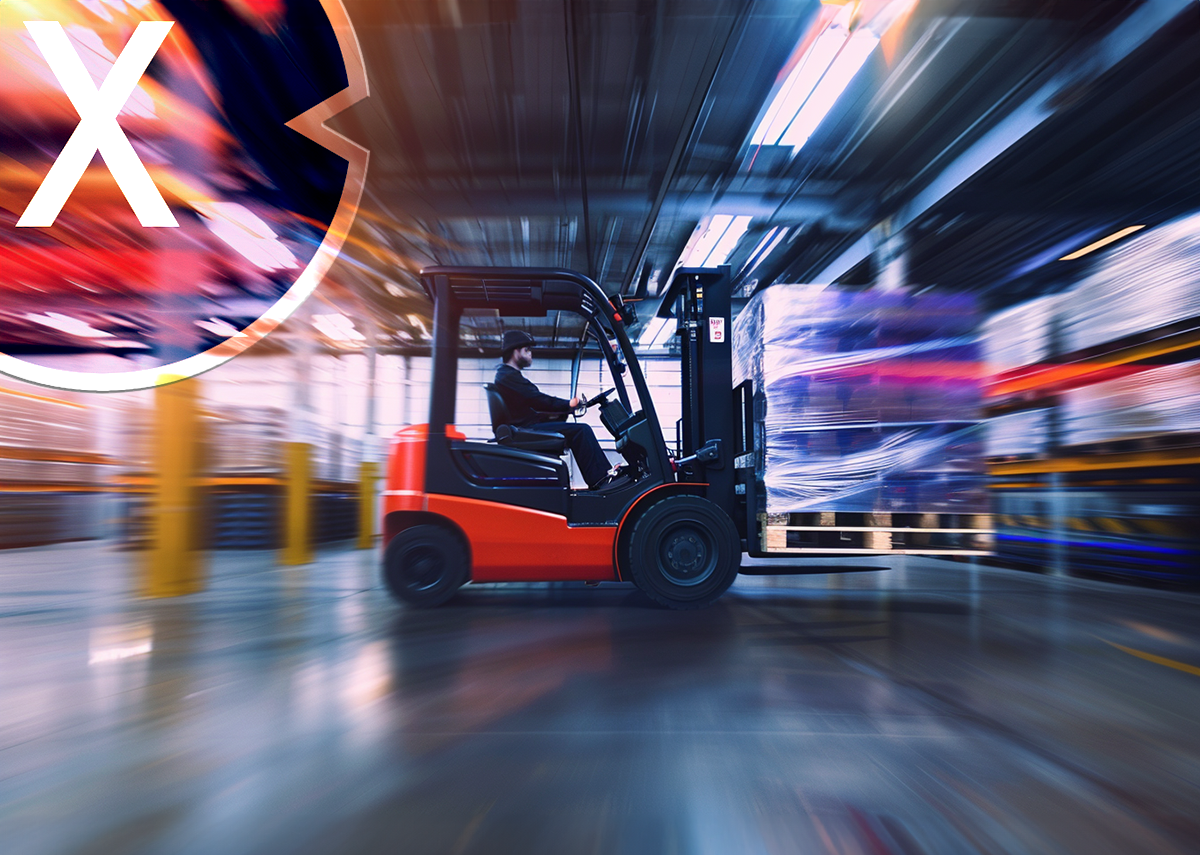
Battery life: Lithium-ion batteries in electric transport and construction machinery – Image: Xpert.Digital
📡 Hybrid storage systems and the future of energy technology: An in-depth look
📡 The constant pursuit of improvements in energy storage technology has led to fascinating innovations, including hybrid storage systems. These forward-looking systems combine different storage technologies to compensate for the disadvantages of each and optimally utilize their advantages. A prime example is the coupling of lithium-ion batteries and supercapacitors. The Fraunhofer Institute for Energy Economics and Energy System Technology IEE, in collaboration with Skeleton Technologies and AVL, has made significant progress in battery aging prediction technology within the "SukoBa" research project, which could revolutionize the application of hybrid storage systems.
🔋 The synergy of lithium-ion batteries and supercapacitors
A hybrid energy storage system that integrates both lithium-ion batteries and supercapacitors (supercaps) leverages the strengths of both technologies while mitigating their weaknesses. Supercapacitors are capable of absorbing and releasing large amounts of energy in extremely short periods. This rapid charging and discharging process does not lead to significant aging, however, because the current is limited not by electrochemical processes but by physical storage capacity. In contrast, supercapacitors have a low energy density, meaning they cannot store large amounts of energy at once.
Lithium-ion batteries, on the other hand, offer high energy density and can therefore store large amounts of energy, but they are sensitive to high current spikes, which can lead to increased wear and a shortened lifespan. These batteries are therefore not suitable for applications with frequent and intense load changes, such as in electric vehicles or construction equipment. This is where supercapacitors come into play. They can absorb load spikes without stressing the battery, resulting in more even and gentler battery usage.
🔎 The SukoBa and BaSiS research project
The "SukoBa" project developed a simulation environment called BaSiS – Battery Simulation Studio – which aims to optimize the interaction of components in hybrid energy storage systems. At the heart of this technology is a degradation model that provides precise predictions of battery aging when operated in conjunction with supercapacitors. Thanks to the BaSiS software, researchers and engineers can now simulate various configurations and operating scenarios and analyze their impact on battery aging.
BaSiS helps to adapt the battery's operating conditions and control algorithms to achieve maximum lifespan at minimum cost. This flexibility is particularly valuable because it allows for the rapid integration and testing of new trends and technologies in battery and supercapacitor research.
💡 Practical advantages of hybrid storage systems
Hybrid energy storage systems offer a multitude of advantages that extend far beyond the basic technical aspects. They enable more efficient energy use in electric vehicles, construction equipment, and stationary energy storage. A key benefit is the extended battery lifespan. By relieving the load during peak loads, the thermal stress within the battery is reduced, resulting in less wear and tear and thus a longer service life. This, in turn, lowers overall costs, as replacement batteries need to be procured and installed less frequently.
Another advantage is improved performance. Supercapacitors can absorb load changes more quickly, resulting in better responsiveness of the entire system. This is particularly important in situations requiring high and rapid currents, such as when starting electric motors or recovering braking energy (recuperation).
🌍 The economic and ecological importance
Technologies for improving battery aging and the efficiency of hybrid storage systems also have significant economic and environmental impacts. Extending battery lifespan reduces costs, leading to wider acceptance and application of these technologies. Furthermore, batteries play a central role in the energy transition to renewable energies. More efficient and longer-lasting energy storage systems help to balance fluctuations in energy supply, which is crucial for integrating wind and solar power into the electricity grid.
From an ecological perspective, a longer battery lifespan also means a reduction in waste and environmental impact from battery production and disposal. The mining of resources like lithium and cobalt, necessary for the production of lithium-ion batteries, causes significant environmental damage. Therefore, a longer battery lifespan could also lead to lower resource consumption and improved sustainability.
🚀 Future developments and challenges
However, the continuous development and optimization of hybrid storage systems also present challenges. One of these is the complexity of system integration and control. Extensive research and development are required to design efficient control algorithms and energy flow in such hybrid systems. Furthermore, the costs of producing and integrating supercapacitors must be further reduced to make these technologies even more economically attractive.
Another research area is the improvement of materials science to further enhance the performance of both batteries and supercapacitors. This includes the development of new electrolyte and electrode materials that offer higher energy density and better charging and discharging characteristics.
🔚 Advances in energy storage technology
Hybrid energy storage systems, which combine lithium-ion batteries and supercapacitors, represent a significant advancement in energy storage technology. By skillfully leveraging the respective strengths and minimizing the weaknesses of both technologies, a longer storage lifespan is achieved and the overall efficiency of the system is increased. Fraunhofer IEE has made a significant contribution with the "SukoBa" project and the development of the BaSiS software, offering technical, economic, and environmental advantages. The future of hybrid energy storage systems is promising and will play a crucial role in sustainable energy supply and use.
📣 Similar topics
- 🔋 Revolutionary Hybrid Energy Storage: A Look into the Future
- ⚙️ Hybrid storage systems: Synergies of batteries and supercapacitors
- ⚡ Optimizing energy: Hybrid technologies in focus
- 📊 SukoBa: Innovation through specialized simulations
- 🚗 Efficient electromobility thanks to hybrid storage systems
- 🛠️ BaSiS: The future of battery simulation starts now
- 🌱 Environmentally friendly energy: Hybrid storage as the key
- 💡 Research and progress: The hybrid storage system in detail
- 📉 Cost reduction and longevity: Advantages of hybrid storage systems
- 🌍 Sustainable energy storage through innovative technologies
#️⃣ Hashtags: #HybridStorageSystems, #LithiumIonBatteries, #Supercapacitors, #BatteryAging, #SustainableEnergy
We are there for you - advice - planning - implementation - project management
☑️ Industry expert, here with his own Xpert.Digital industry hub with over 2,500 specialist articles
I would be happy to serve as your personal advisor.
You can contact me by filling out the contact form below or simply call me on +49 89 89 674 804 (Munich) .
I'm looking forward to our joint project.
Xpert.Digital - Konrad Wolfenstein
Xpert.Digital is a hub for industry with a focus on digitalization, mechanical engineering, logistics/intralogistics and photovoltaics.
With our 360° business development solution, we support well-known companies from new business to after sales.
Market intelligence, smarketing, marketing automation, content development, PR, mail campaigns, personalized social media and lead nurturing are part of our digital tools.
You can find out more at: www.xpert.digital - www.xpert.solar - www.xpert.plus

